#China
Chinese Automakers Are Sweet and Sour on Fiat Chrysler Ownership
After a bombshell report stated multiple Chinese automakers are courting Fiat Chrysler Automobiles in the interests of a buyout, the country’s most well known manufacturer says it wasn’t the one making an offer.
Geely Automotive, an unknown entity until its parent holding company’s 2010 purchase of Ford castoff Volvo Cars, claims it isn’t planning a takeover of the Italian-American automaker. However, it’s not like Geely’s parent company doesn’t have deep pockets. Surely there’s roughly $20 billion in clanky bits somewhere in those trousers.
Still, a source claims Zhejiang Geely Holding Group did hold preliminary talks with FCA late last year.
2017 Buick Envision Preferred AWD Review - The Buick Tri-Shield Badge Premium Exists
General Motors apparently believes you’ll pay a genuinely lofty price for the 2017 Buick Envision precisely because it’s a Buick.
A basic 2017 Buick Envision, upgraded with Preferred trim in order to select the $1,850 all-wheel drive system, costs $38,645. That’s correct: the least costly AWD Envision is priced from $38,645. General Motors will sell you a larger, V6-engined, AWD GMC Acadia for only $445 more.
But that’s a GMC. A generic, garden variety, menial GMC. The Envision seeks to mercilessly trample on the Acadia’s blue collar status.
Who would want a spacious GMC when you could own a Buick; a smaller, less powerful, China-made Buick with cloth seats, no sunroof, blank switches at the front of the center console, and no advanced safety gear? Evidently, the person who’s willing to pay a premium for the Buick tri-shield badge. You know, the buyer who places a value on supposed Buick prestige over and above any accompanying equipment that may (or may not) accompany this alleged luxury SUV.
Fiat Chrysler Alleged to Have Multiple Chinese Suitors
Fiat Chrysler Automobiles CEO Sergio Marchionne has been hoping to sell the company to the right kind of buyer for a while now. But, with no serious contenders, FCA has been forced to trudge onward into the future without a bonafide suitor.
That’s rumored to have changed, as numerous sources are claiming Chinese automakers have taken an interest in the Italian-American company. However, whether these are potential one-night stands or a serious courtship remains unknown. Marchionne has previously specified he only wants to see FCA enter into the warm embrace of an established automaker and, while China has them, some would be better partners than others.
The Sport Utility Vehicle: America's Gift That Keeps on Giving
Not to sound overly patriotic or offend my Canadian coworkers, but United States is responsible for giving the world so much greatness that it’s difficult not to get a little misty eyed when I stop to think about it.
America’s long history of inventiveness has blessed the globe with modern marvels like sunglasses, chewing gum, kitty litter, the atomic bomb and, of course, sport utility vehicles. While the atomic bomb doesn’t get much broad praise these days, the rest of the aforementioned items are exceptionally popular outside the nation’s borders — especially SUVs and their bastard offspring, the crossover.
In fact, they’ve been such a runaway success that SUVs accounted for over 25 percent of all European passenger vehicle sales in 2016. That’s up from 21 percent in 2015 and there’s no sign of it stopping anytime soon. Sport utility vehicles are expected to surpass a third of the region’s new vehicle market by 2020. Assumedly, America’s own SUV sales will be hovering around 100 percent by then — maybe more. But let’s not discount how crossover-crazy the rest of the globe has become or forget to remind ourselves that most of the world’s best-selling SUVs aren’t exactly “Made in America.”
Cadillac Sales Volume Plunged in July 2017, or Did It?
Expand your horizons. See the forest, not just the trees. Look west of the Pacific Coast Highway.
Cadillac sales plunged in the United States in July 2017, dropping by more than a fifth to only 11,227 units. That 22-percent dive was the worst for Cadillac’s U.S. operations since April of last year. The 11,227-sale result represented a five-month low for Cadillac in the United States and the lowest-volume since 2011.
But Cadillac is increasingly a less U.S.-centric automotive brand. Just three short years ago, two-thirds of Cadillac’s volume was produced in its American home market. Fast forward to July 2017 and the majority of Cadillac’s volume isn’t produced in the market where it’s suffering from such dwindling demand.
Rather, Cadillac generates the bulk of its global volume outside of America, where Cadillac demand is rapidly increasing.
Deal Breaker: To Avoid Any Trace of New Car Smell, China Goes to Extremes
China doesn’t possess the same affinity for the iconic “new car smell” that remains popular in North America. The scent itself, a conglomeration of industrial adhesive fumes and the off-gassing of various plastics, is technically toxic air pollution trapped inside the vehicle’s cabin. However, Western drivers have made it synonymous with the pleasantries of owning a new vehicle, while Chinese motorists have not.
This brings up a very important question. Are they bad people?
While it would be very easy to use this single example to conclude that China is a perverse and disturbed nation, Westerners subjected to the volatile compounds of a new car’s interior on a particularly hot day might agree that the smell, in heavy doses, occasionally leaves something to be desired. Ideally, the odor should bring a tear to the eye due to nostalgia or pride, not because it’s trying to flush out the hazardous vapors emitted by baked vinyl.
“Research shows that vehicle interiors contain a unique cocktail of hundreds of toxic chemicals that off-gas in small, confined spaces,” said Jeff Gearhart, research director at the Ecology Center, which has been researching the the smell since 2006. “Since [most of] these chemicals are not regulated, consumers have no way of knowing the dangers they face. Our testing is intended to expose those dangers and encourage manufacturers to use safer alternatives.”
Automakers have been. As a result, the intensity of new car smell has diminished quite a bit since the early 2000s. In North America, it’s largely the result of trying to exclude carcinogenic fumes from substances like polyvinyl chloride. But in China, the practice extends out to nullifying any negative associations shoppers might have with the scent by trying to eliminate it entirely. It’s the number one concern for new car buyers, and automakers and customers go to great lengths to avoid even the slightest whiff.
Faraday Future Abandons Production Plant as Chinese Backer Goes Bust
Faraday Future, the American electric vehicle startup backed by LeEco founder Jia Yueting, has abandoned plans to construct its now infamous $1 billion factory in Nevada due to severe financial woes. It’s another nail in Faraday’s coffin as the firm was claiming it would resume construction of the plant less than six months ago.
Work at the North Las Vegas site stalled in 2016 after repeated nonpayment to the construction firm and numerous suppliers.
It’s become a bit of a running gag, as Jia has begun pleading with literally anyone who will listen to give his automotive endeavors more time to pay up. Last week on Weibo, China’s biggest social-media site, Jia publicly promised to repay his debts as he committed himself his electric car businesses. He then resigned as chairman.
“Please give LeEco some time, please give LeEco car some time,” Jia wrote, admitting he had made financial errors in the past. “We will pay back creditors, suppliers and any other debts.”
QOTD: Do You Skimp on Tires? Do You Care If the OEM Does?
Want a definition of irony that has nothing to do with rain on your wedding day? Well, here you go: The spectacular abilities of the modern performance automobile are about half due to electronic engine control and about half due to modern tire technology. That’s an estimate, of course, and one that might not be all that fair to the tires. Every time you hear some stupidity about how ECONOCAR XXX is three seconds faster around a reference course than SUPERCAR YYY, you can be reasonably sure that the times for the old car were set on “ultra high performance” tires that wouldn’t make the cut nowadays on a half-ton pickup.
Many of the ERMAGHERD lap-time specials out there are largely or entirely dependent on boutique tires for their performance. This is particularly true for the current crop of domestic rockets which often have a vehicle-specific fitment that shares little to nothing with other sizes of that particular sidewall labeling. (Your Honor, Exhibit A: The Kumhos on the Viper ACR.)
You would think that the buyers of those cars would understand just how critical it is to obtain fresh date codes of the original super-rubber every time they replace their tires. Nah.
China's Idiotic Elevated Bus Concept Turned Out to Be a Scam
Beijing, like most major metropolitan areas, has a problem with traffic. For a time, Chinese officials thought they had been sent a solution to gridlock in the form of a futuristic-looking urban conveyance dubbed the Transit Elevated Bus (TEB-1).
While not technically a bus at all, the vehicle acts as more like a catamaran on rails, moving a few hundred people over traffic as a colossal trolley. The concept for the TEB has been in existence since the late 1960s, however, no country had ever bothered to build one before China — and for good reason.
Daimler, BAIC Investing $735 Million Into Chinese EV Production Pretty Much Out of Necessity
Daimler AG is dumping half of a 5 billion yuan sum, or 735 million dollars, into China as part of a joint venture with BAIC Motor Corp. Together, the companies plan to establish the groundwork for competent EV production in the region — meaning a good ol’ fashioned battery factory.
The bill is split between the two firms, as China requires every foreign automaker to partner with a domestic one to do business within the country. The new factory will be a product of Beijing Benz Automotive, a blandly named limited liability company created to further Mercedes’ interest within the country and bolster its EV production capabilities globally.
BMW Drops Manual Transmission From Best Model to Help Pay for R&D
BMW plans to streamline its manufacturing process by providing fewer model variants and eliminating less popular engine or equipment options. The goal here is to free up capital for research and development spending in the coming years, according to a Wednesday announcement from the brand’s chief finance officer, Nicolas Peter.
With most German automakers already pushing heavily into the realm of electric vehicles, BMW’s strong presence in China is forcing it to further bolster its efforts in EV development. The country’s particularly aggressive emission regulations and mandates on electric vehicle sales means any manufacturer hoping to persist within its borders will have to ensure 12 percent of its fleet is electric by 2020 — and BMW isn’t ready.
As a result, the automaker is trimming fat wherever it can find it. Unfortunately, that means eliminating the manual gearbox for the 2 Series in the United States and abandoning certain engine options for models across the globe. While BMW wasn’t explicit as to which motors won’t be returning, odds are good it will be the fun ones that don’t sell as well, plus the diesels.
Lotus Production Could Begin in China, Claims New Owner
Iconic British sportscar manufacturer Lotus may find a portion of its future production shifted to China under the ownership of its new parent company, Geely. Chinese billionaire and Geely chairman Li Shufu confirmed the possibility of some assembly taking place outside the United Kingdom during a press conference following the signing of the deal.
While this could stir outrage in some traditionalists, the Chinese company hasn’t mucked up things with Volvo yet and appears willing to apply a similar hands-off approach to the management of Lotus Cars.
Losing Focus: A World Where Ford's Compact Car Production Stops for a Year Is Our Reality
Ford has plans to halt production of the compact Focus — a one-time juggernaut of a model — for an entire year. But wouldn’t you rather talk about the upcoming Ranger and Bronco?
Of course you would. You’d rather buy one, too, if only the resurrected nameplates were already on lots. Back in 2002, when Limp Bizkit was still on the charts and frosted tips hadn’t entirely disappeared from the hair scene, Ford unloaded 243,199 Focus cars to U.S. buyers. Compare that to the first five months of 2017, where 67,146 Foci left dealer lots in a marketplace where passenger car sales are falling like Brent crude prices in 2014.
It’s against this backdrop that Ford plans to temporarily pull the plug on the Focus. While there’s good reason for the shutdown, the automaker doesn’t seem all that concerned about it.
Automotive Industry Annoyed China Gets to Decide What Engines It Offers
With the possible exception of the United States in the near future, emission regulations are getting harsher everywhere. Nowhere is that more true than China. Not only does Asia’s most populous country have some of the most stringent emission requirements for new cars, it also has the strictest sales quotas for electrically powered vehicles on the planet. Too strict, according to some automakers.
A Chinese draft regulation issued last week stipulates automakers must sell enough electric or plug-in hybrid vehicles to comprise 8 percent of total volume by 2018, 10 percent by 2019, and 12 percent by 2020. This comes after talks between Chinese Premier Li Keqiang and German Chancellor Angela Merkel that hinted China might have mercy on Germany manufacturers.
Ford Focus to Become a Chinese Import for U.S. Buyers in 2019
There’s a good chance the next Ford Focus you purchase will have arrived via a slow boat from China. Despite abandoning assembly plans in Mexico earlier this year, Ford Motor Company has decided the next-generation model will remain an import, now by way of Asia.
Current Focus production in Wayne, Michigan will be eliminated in the middle of next year to make way for Ford’s upcoming Ranger pickup (in late 2018) and Bronco (in 2020). The automaker assures hourly workers they won’t suffer from layoffs resulting from the changeover, but admits to prioritizing its U.S. assembly plants for trucks and SUVs — vehicles Americans will actually buy.






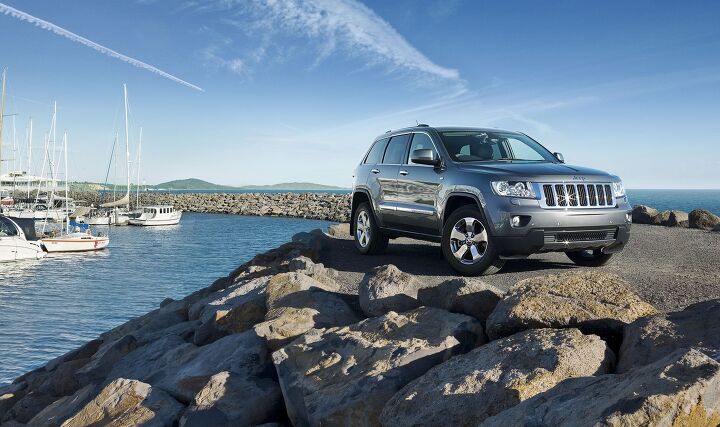
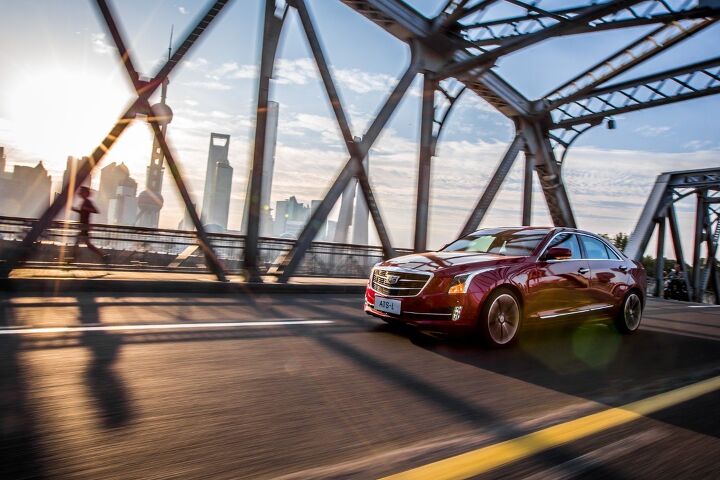



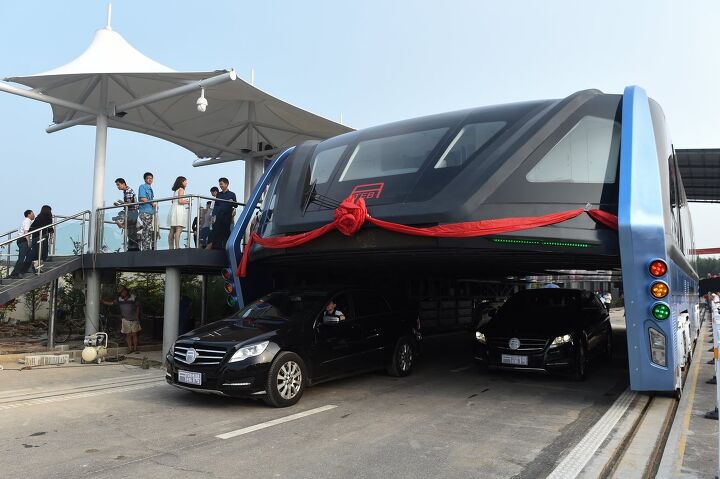

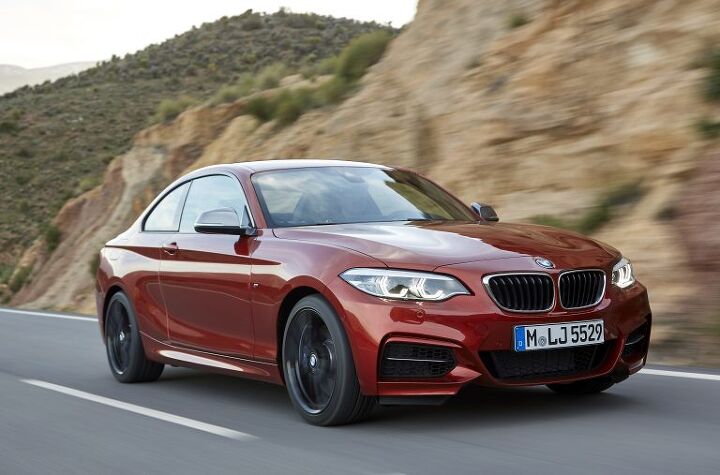

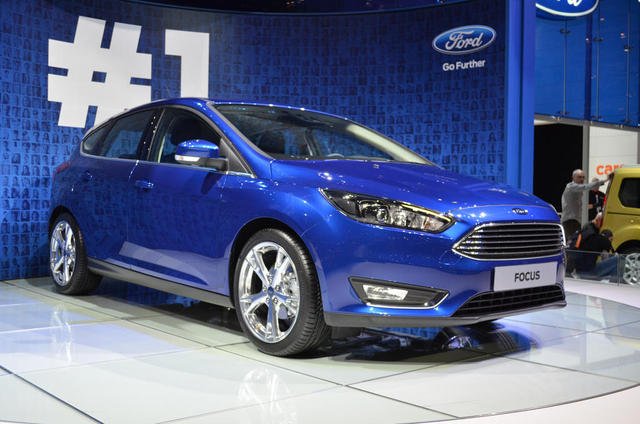














Recent Comments